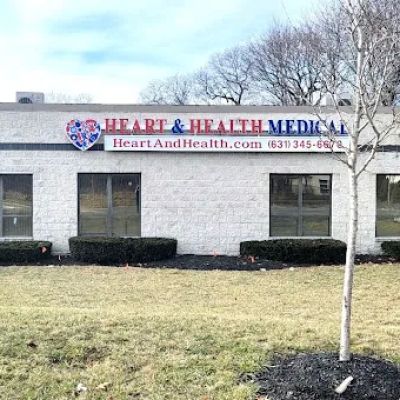- 1 - Understanding the Link Between Work Stress and Heart Health
- 2 - How Stress Physically Impacts the Heart
- 3 - Real-World Cases That Illustrate the Risks
- 4 - Common Workplace Factors That Drive Stress
- 5 - Effective Strategies to Manage Work-Related Stress
- 6 - Long-Term Heart Health Benefits of Reducing Stress
- 7 - Trusted Resources for Stress and Heart Health Support
1. Understanding the Link Between Work Stress and Heart Health
Work-related stress is more than an emotional challenge; it can have direct consequences on cardiovascular health. Studies consistently show that individuals with high job strain face a significantly increased risk of heart disease. Whether it comes from long hours, high demands, or lack of control in the workplace, chronic stress places a hidden but dangerous burden on the heart.

2. How Stress Physically Impacts the Heart
When stress levels rise, the body releases hormones like adrenaline and cortisol. These chemicals increase heart rate and blood pressure, which over time can contribute to arterial damage and plaque buildup. Stress can also promote unhealthy coping behaviors such as overeating, smoking, or excessive alcohol consumption, further compounding cardiovascular risks. This biological chain reaction highlights why work-related stress must be taken seriously as a heart health issue.
Atlanta Heart Specialists
atlanta heart specialists
4375 Johns Creek Pkwy #350, Suwanee, GA 30024, USA

3. Real-World Cases That Illustrate the Risks
Consider the story of a high-powered executive who suffered a heart attack in his 40s despite regular exercise. His downfall was chronic stress from nonstop deadlines and frequent travel, which left his blood pressure uncontrolled. Similarly, teachers and healthcare workers have reported higher levels of stress-related heart conditions due to emotionally demanding environments. These cases underline that even those who appear healthy on the outside may carry hidden risks from constant work pressure.
4. Common Workplace Factors That Drive Stress
Several workplace elements consistently emerge as stress drivers: unrealistic deadlines, lack of managerial support, poor work-life balance, and toxic office cultures. Remote work has added new challenges, blurring the boundaries between home and work life. Understanding these factors is crucial for identifying the sources of stress that can quietly erode both mental and heart health.
5. Effective Strategies to Manage Work-Related Stress
Managing stress starts with self-awareness. Techniques such as mindfulness, structured breaks, and time management can make an immediate difference. Incorporating regular physical activity, maintaining a heart-healthy diet, and ensuring adequate sleep are also proven methods to counteract stress effects. For many, seeking professional guidance through counseling or wellness programs is an essential step. Platforms like HeartCare Hub offer resources, wellness tools, and products designed to support stress management and protect cardiovascular health.
6. Long-Term Heart Health Benefits of Reducing Stress
Reducing work-related stress is not just about feeling better in the moment—it has profound long-term benefits for heart health. Lower stress levels translate to reduced blood pressure, improved cholesterol profiles, and decreased inflammation, all of which protect against heart disease. Creating a healthier work environment and personal routine can significantly extend life expectancy and improve quality of life.
7. Trusted Resources for Stress and Heart Health Support
For those seeking actionable support, healthcare providers remain a critical first stop. Beyond that, trusted platforms such as HeartCare Hub provide practical advice, curated wellness products, and professional insights to help individuals manage stress and safeguard heart health. By combining workplace adjustments with personal care strategies, individuals can take control of both their stress levels and their cardiovascular future.






















Deborah Heart and Lung Center
deborah heart and lung center
200 Trenton Rd, Browns Mills, NJ 08015, USA